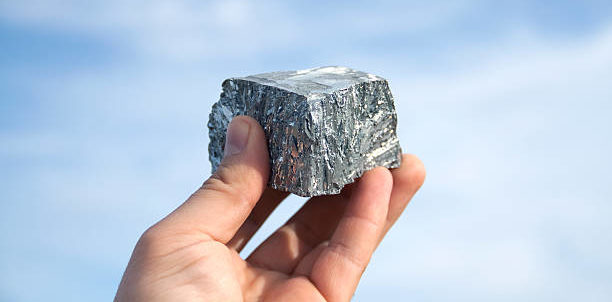
Why Zinc is a Sustainable Material
Zinc is widely recognized as a sustainable material, playing a crucial role in various industries such as construction, energy, and agriculture. Its unique properties make it highly valuable for sustainability efforts. From its infinite recyclability to its role in energy efficiency and environmental conservation, zinc is a key contributor to a circular economy.
1. Zinc is 100% Recyclable
One of the main reasons why zinc is considered sustainable is its 100% recyclability. Zinc can be recycled indefinitely without any loss in quality or performance. Products like galvanized steel, which are coated with zinc, can be melted down and reused repeatedly. This dramatically reduces the need for mining new zinc, conserving natural resources and reducing environmental impact.
Zinc recycling also consumes far less energy than primary zinc production. For example, recycled zinc requires only about 25% of the energy used to produce zinc from ore. This energy-saving aspect of zinc recycling helps reduce greenhouse gas emissions and contributes to a more sustainable manufacturing process.
2. Zinc Extends Product Lifespan Through Corrosion Protection
Zinc is best known for its role in protecting steel from corrosion through the process of galvanization. Galvanized steel is used in construction, infrastructure, and transportation, significantly extending the lifespan of these products. By preventing rust and deterioration, zinc-coated steel can last for decades, reducing the need for frequent repairs or replacements. This durability not only saves resources but also minimizes waste generation, further contributing to sustainability.
3. Abundant Natural Resource with Responsible Mining
Zinc is one of the most abundant metals on Earth, making it a reliable and accessible resource. With advancements in responsible mining practices, zinc extraction can be conducted with minimal environmental impact. Many zinc mines around the world have adopted sustainable practices, including reducing water usage, minimizing energy consumption, and controlling emissions during extraction and processing.
Sustainable mining initiatives ensure that zinc production aligns with environmental standards, supporting long-term ecological balance. As a result, zinc’s availability is maintained while its impact on the environment is minimized.
4. Energy Efficiency and Environmental Benefits
Zinc plays a significant role in energy efficiency due to its ability to extend the lifespan of materials and reduce the need for resource-intensive replacements. For example, buildings made with galvanized steel require fewer repairs over time, leading to lower energy consumption throughout their life cycle.
In addition to its use in construction, zinc is crucial for renewable energy solutions. Zinc is an important component in batteries, such as zinc-air batteries, which are being explored for energy storage in renewable energy systems. These batteries are known for their efficiency and low environmental impact, making zinc an essential player in the shift toward cleaner, greener energy sources.
5. Zinc Supports Sustainable Agriculture
Zinc is also vital for sustainable agriculture. It is an essential micronutrient for plant growth, contributing to higher crop yields and improved food security. Zinc fertilizers help maintain healthy soil and enhance the nutrient content of crops, which is particularly important in areas with zinc-deficient soils. By improving crop resilience and productivity, zinc supports sustainable agricultural practices that can feed a growing global population without depleting natural resources.
Conclusion: Zinc’s Role in Sustainability
Zinc’s recyclability, ability to extend product lifespans, abundance, and role in energy efficiency and agriculture make it a sustainable material. As industries worldwide aim to reduce their environmental footprints, zinc stands out as an essential metal that contributes to a more circular, sustainable economy.
Incorporating zinc into various applications—from construction to renewable energy—helps reduce waste, save energy, and promote a greener, more sustainable future.
Key takeaway: Zinc is a highly sustainable material due to its recyclability, corrosion resistance, and role in energy efficiency and sustainable agriculture. Its unique properties make it an essential resource for industries aiming to reduce environmental impact.


